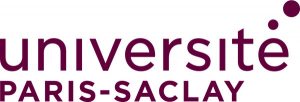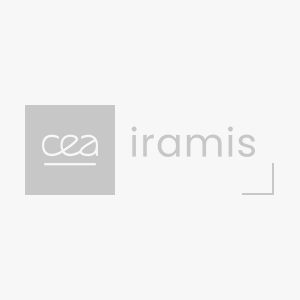Description du poste
Directorate
The Directorate for Fundamental Research (DRF) at the Commissariat à l’Energie Atomique (CEA), carries out fundamental research in relation to the missions of the CEA in the fields of physics, chemistry and life sciences, in which its excellence is internationally recognized.
Job Description
Research Project: Implementation of Machine Learning techniques to optimize laser-plasma accelerators experimentally and numerically for industrial and medical applications.
The tremendous progress of the last 20 years in the domain of laser-plasma electron accelerators has allowed the community to understand the physics of the acceleration process and to achieve the generation of electron beams with remarkable characteristics. One of the next steps in the field is to develop such Laser-driven Particle Accelerators (LPA) for applications, leveraging their unique properties in terms of compactness and ultra-short duration of the accelerated particle bunch. Since the first, very recent, experimental demonstration of the huge potential of machine learning techniques to automate and control LPAs, their use in the field has been burgeoning. Various algorithms are developed and tested to efficiently determine the optimum parameter set that will lead to the ideal laser-driven electron beam for a specific application. Due the extremely short duration (femtosecond range) of the accelerated particle bunches, LPAs are extreme dose rate sources of great interest for radiotherapy, especially in the context of FLASH radiotherapy. Since the first experimental evidence for FLASH effect in 2014 with conventional accelerators, the worldwide community is actively working on trying to understand the basic mechanisms underlying the physical and biological process responsible for the increased preservation of healthy tissue surrounding the tumor treated with ultrashort electron bunches. LPAs are promising alternative sources to conventional accelerators for investigating the fundamental physico-chemical processes underlying these biological effects.
The first phase of this project will be to implement a Machine Learning (ML) solution to optimize the properties of the electrons accelerated in our brand new 100 TW-class experimental facility, in order to irradiate various samples (biological, chemical …) for dosimetry and radiobiology experiments. This ML solution will leverage the numerous diagnostics that we have already installed in order to be able to control the properties of the laser and the plasma. As part of the EURO-LABS network (European Laboratories for Accelerator Based Sciences), we will benefit from a ML toolkit, developed by GSI (Germany). This toolkit, originally conceived for conventional accelerators, will be adapted to the specificities of LPA and tested on our experimental facility for validation.
The second phase of the project will consist in using ML to implement a surrogate model able to predict the properties of the electrons accelerated with a LPA as a function of the laser and the plasma properties, over a large parameter space. The aim is to use this tool to reduce the need of costly Particle-In-Cell simulations, the numerical tool typically used to model LPAs. The surrogate model will be trained on numerical simulation results performed with the state-of-the-art Particle-In-Cell code WarpX and, depending on the availability, experimental results.
The third phase of the project would consist in coupling the output of Particle-In-Cell simulations or of the aforementioned surrogate model to a Monte Carlo code such as Geant4-DNA, in order to simulate the effect of electron bunches accelerated with LPAs on biological samples.
Depending on their interest, the postdoc may also be directly involved in experimental campaigns on the UHI100 laser facility at CEA or on other national and international laser facilities.
This project will benefit from the diverse expertise of the groups at CEA/LIDYL, as well as of their partners. In particular, the second and the third phase of the project will be carried out in collaboration with the Department of Accelerators, Cryogenics and Magnetism at the Institute for Research on the Fundamental laws of the Universe (CEA/IRFU), whose mission is to carry out research and development activities of excellence in the field of particle accelerators. The project will also benefit from the expertise on radiotherapy and radiobiology of the INanoTherad network.
Required qualifications
The candidate must have strong skills and interests in one or more of the following areas:
• Laser-plasma acceleration
• Particle-In-Cell simulations of laser-plasma interaction
• Machine learning techniques
• High-performance computing and parallel programming (CPUs and GPUs)
Good knowledge of the Python programming language is essential, while knowledge of C++ will be considered as an advantage.
A good knowledge of the English language is essential, at the level required to present results at international conferences and to write scientific papers. Knowledge of the French language is not a requirement.
Job type
A fully funded 2 years position at CEA/IRAMIS. The preferred starting date for this position is around March/April 2024.
Application/Selection Procedure
Candidates must apply online via the CEA career website via (https://www.emploi.cea.fr/offre-de-emploi/liste-offres.aspx ) and by additionally emailing a complete file to and
The application file will contain:
• a CV
• a comprehensive record of professional achievements (publications, fellowships, awards …)
• a cover letter highlighting the motivations for applying to this position
• contact information for 2 references that might be contacted
Application deadline
applications will be accepted until the position is filled
Localisation du poste
IRAMIS/LIDYL – Bâtiment 701 – Orme des Merisiers – CEA/Saclay –
91191 Gif-Sur-Yvette Cedex, FRANCE



